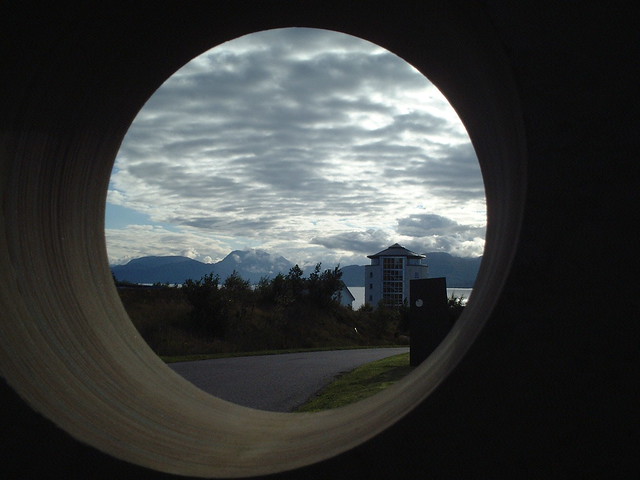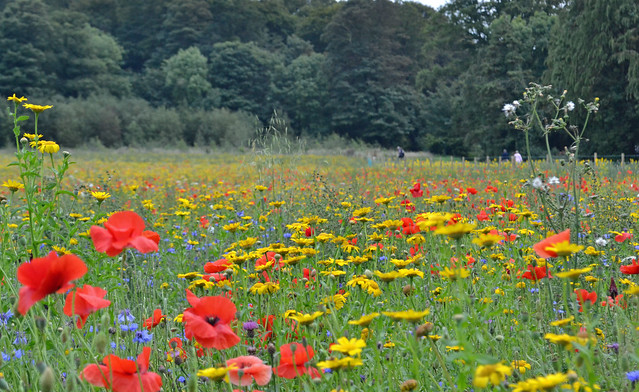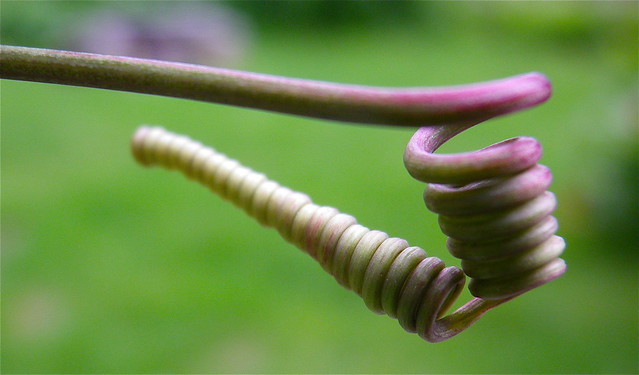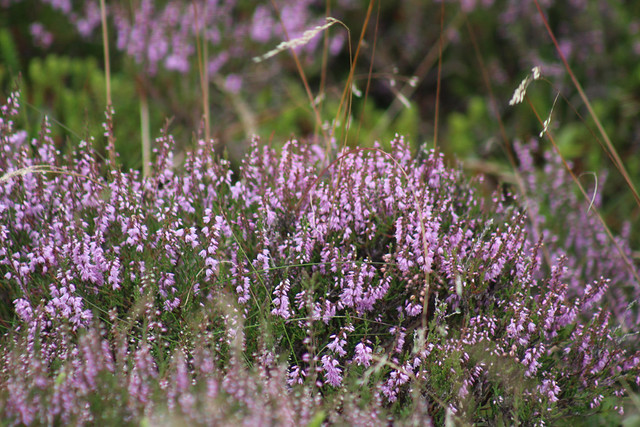Here are some words for through, across, over and related things in Celtic languages.
Words marked with a * are reconstructions.
| Proto-Celtic | *trē = through |
|---|---|
| Old Irish (Goídelc) | tre [tʲrʲe] = through trium = through me triut = through you (sg) triit = through him tree = through her triunn = through us triib = through you (pl) treu, tréu = through them |
| Middle Irish (Gaoidhealg) | tri, tre, tré, trí [tʲrʲe] = through, along, across, by means of tríom(sa) = through me triut, tréot = through you (sg) tríd(sean) = through him trethe, trithe = through her trínn(e) = through us tríbh(se) = through you (pl) tríothu(san) = through them |
| Irish (Gaeilge) | trí [tʲɾʲiː] = through, within, throughout, on account of, by mean of tríom(sa) = through me tríot(sa) = through you (sg) tríd(sean) = through him trínn(e) = through her tríthi(se) = through us tríbh(se) = through you (pl) tríothu(san) = through them |
| Scottish Gaelic (Gàidhlig) | tre [edər] = through tríom(sa) = through me tríot(sa) = through you (sg) tríd(sean) = through him trínn(e) = through her tríthi(se) = through us tríbh(se) = through you (pl) tríothu(san) = through them |
| Manx (Gaelg) | trooid = through, betwixt my hrooid = through me dty hrooid = through you (sg) e hrooid = through him e trooid = through her nyn drooid = through us / you (pl) / them |
| Proto-Brythonic | *truɨ = through |
| Old Welsh | troi = through |
| Middle Welsh (Kymraec) | trui, trwy, drỽy = through trwof, drwof = through me trwot, drwot = through you (sg) trwyddo, drwyddo = through him trwyddi, drwyddi = through her trwom, drwom = through us trwoch, drwoch = through you (pl) trwyddynt, drwyddynt = through them |
| Welsh (Cymraeg) | trwy, drwy [truːɨ̯/trʊi̯] = through(out), from end to end, over, across, along, while, by (means of), according to, because of trwyddo (f)i = through me trwyddot ti = through you (sg) trwyddo fe/fo = through him trwyddi hi = through her trwyddon ni = through us trwyddoch chi = through you (pl) trwyddyn nhw = through them trwyenaf, trawenu = to go (over, through), cross, bring through |
| Middle Cornish (Cernewec) | tre = through |
| Cornish (Kernewek) | dre = through via, by means of , per dredhov = through me drehos = through you (sg) dredho = through him dredhi = through her dredhon = through us dredhowgh = through you (pl) dredha = through them dre bub rann/radn = throughout dre happ = by chance, by the way, incidentally dre wall = accidentally, by accident drefen = because of, on account of |
| Old Breton (Brethonoc) | dre = through |
| Middle Breton (Brezonec) | dre, der, tre = through dreizoff = through me drezoude = through you (sg) dreizaff = through him drezi, dredi = through her dré-omb = through us dreizoch = through you (pl) drezo, drede, dreze = through them |
| Breton (Brezhoneg) | dre [dreː] = through, by, with drezon = through me drezout = through you (sg) drezañ = through him drezi = through her drezomp = through us drezoc’h = through you (pl) drezo, dreze = through them dre gant = percent dre guzh = in secret dre zegouezh = by chance, by accident |
Etymology: possibly from the Proto-Indo-European *terh₂-/*ter- (to cross over, pass through, overcome) [source]. Words from the same PIE root include thorough and through in English [source].
| Proto-Celtic | *taras = through, across |
|---|---|
| Old Irish (Goídelc) | tar = across, over, through thorum(sa) = over me torut(su) = over you (sg) tarais = over him tairse = over her torunn(i) = over us toraib = over you (pl) tairsiu = over them |
| Middle Irish (Gaoidhealg) | tar = over, across, covering torum, torom, toram = over me torut, torot, thorad = over you (sg) tarais, taris, tairis = over him tarsi, tairs = over her torunn, torund = over us toraib thoruibh = over you (pl) tairis, tairise = over them |
| Irish (Gaeilge) | thar [haɾˠ/hæɾʲ] = over, above, across, by, past, through, beyond, more than tharam(sa) = over/beyond me tharat(sa) = over/beyond you (sg) thairis(-sean) = over/beyond him thairsti(se) = over/beyond her tharainn(e) = over/beyond us tharaibh(se) = over/beyond you (pl) tharstu(san) = over/beyond them thar bord = overboard thar sáile = overseas thar téarma = overdue |
| Scottish Gaelic (Gàidhlig) | thar [har] = across, over tharam(sa) = over me tharad(sa) = over you (sg) thairis(-san) = over him thairte(se) = over her tharainn(e) = over us tharaibh(se) = over you (pl) tharta(san) = over them thar bòrd/stoc = overboard thar chnoc is sloc fuar fad ás = over the hills and far away thar chuain = overseas, across the sea thar tomhais = beyond measure |
| Manx (Gaelg) | har [har] = across, beyond, former harrish = above, across, beyond, bygone, over, trans harrym(s) = over me haryd(s) = over you (sg) harrish(yn) = over him harree(ish) = over her harrin(yn) = over us harriu(ish) = over you (pl) harroo(syn) = over them har cheer = overland har mooir = oveasea harrish as tarrish = over and over harrish boayrd = overboard harrish shen = furthermore, moreover harrish yn traa = overdue |
| Proto-Brythonic | *tra(ns) = very, extremely, exceedingly, beyond |
| Middle Welsh (Kymraec) | tra = very, extremely, exceedingly, beyond |
| Welsh (Cymraeg) | tra = very, extremely, exceedingly, beyond, the other side of, over, across, more than, above |
| Middle Cornish (Cernewec) | tra, tre = beyond, over |
| Cornish (Kernewek) | dres = beyond, during, in the course of, over, past, through dres an gwartha = over the top dres mor = overseas dres nos = overnight |
| Old Breton (Brethonoc) | tra = through, across, by means of |
| Middle Breton (Brezonec) | tra = through, across, by means of |
| Breton (Brezhoneg) | tra [tʁa] = while tramor [traˈmoːr] = overseas |
Etymology: possibly from the Proto-Indo-European *térh₂-t (to get through, cross over) [source]. Words from the same PIE roots include trans- in English, très (very) in French, tras (behind, after) in Galician, and tras (after, behind, beyond) in Spanish [source].
| Proto-Celtic | *trāns(s) = across |
|---|---|
| Old Irish (Goídelc) | trá [traː] = then, therefore |
| Middle Irish (Gaoidhealg) | trá, tra, thra = then, therefore, so, however, but, on the other hand |
| Irish (Gaeilge) | trá = then, indeed, however |
| Proto-Brythonic | *trọs = strong, powerful, potent, mighty (?) |
| Old Welsh | traus = strong, powerful, potent, mighty |
| Middle Welsh (Kymraec) | traỽs, traus, traws = strong, powerful, potent, mighty artraus, ar traỽs. ar y draỽs, ar traws = across, over, upon, about trowsi = to move/cut across, cross trawsedd = perverseness, obstinacy, rebellion |
| Welsh (Cymraeg) | traws = strong, powerful, potent, mighty, cruel, oppresive, cross, transverse, oblique, slanting ar draws = across, over, upon, about traws(i)af, trawsu, traws(i)o = to move/cut across, cross, turn sideways trawsedd = perverseness, obstinacy, rebellion trawseddaf, trawseddu = to offend, transgress |
| Middle Cornish (Cernewec) | tres = adverse, cross, forward adres = across |
| Cornish (Kernewek) | treus = pass treusfurvyaz = transform a-dreus = across |
| Old Breton (Brethonoc) | tros = traverse, distance |
| Middle Breton (Brezonec) | treuz, treus, trez = traverse, distance |
| Breton (Brezhoneg) | treuz [trøːs] = traverse. distance, height a-dreuz = across, traverse treuzer = ferry treuzerezh = crossing treuzfurmin = to transform treuzkas = to transmit treuzkaser = transmitter treuzlat = transfer |
Etymology: from the Proto-Indo-European *terh₂- (to cross over, pass through, overcome) [source].
Sources: Wiktionary, Am Faclair Beag, Online Manx Dictionary, Teanglann.ie, eDIL – Electronic Dictionary of the Irish Language, In Dúil Bélrai English – Old Irish glossary, Geiriadur Prifysgol Cymru, Gerlyver Kernewek, Dictionaire Favereau, TermOfis, English – ProtoCeltic WordList (PDF), Etymological Dictionary Of Proto Celtic












